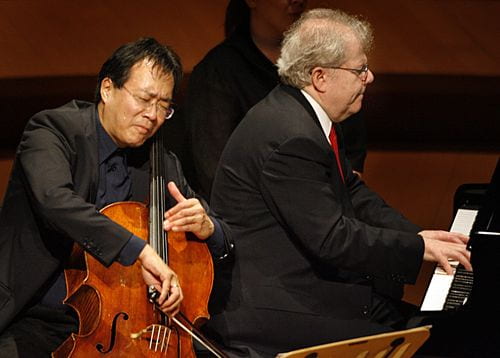Polish Music Reference Center Newsletter Vol. 16, no. 2
Chopin & Paderewski Year
Chopin Around The World
Last month’s Newsletter enumerated some of the ways that the Chopin year will be celebrated in Poland, but the 200th anniversary of Chopin’s birth will also be celebrated enthusiastically abroad. It is almost impossible to keep track of all the Chopin events happening around the globe. Thankfully, there is one association that has pulled together many of Chopin-related events: The International Federation of Chopin Societies. Currently the organization unites 40 Chopin Societies from around the world and provides information for different events organized by its members. Please visit the Chopin 2010section of the Federation’s website for a comprehensive list of events organized by the member organizations.
Chopin in Los Angeles
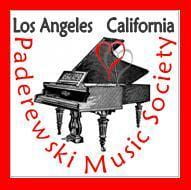 On Saturday, February 27 at 7 pm, the Paderewski Music Society and Modjeska Art and Culture Club will present an evening of music and poetry in honor of Frederic Chopin’s 200th birthday. The concert will take place in Zipper Hall at the Colburn School of Music, across the street from Walt Disney Concert Hall in Downtown Los Angeles (200 South Grand Avenue).
On Saturday, February 27 at 7 pm, the Paderewski Music Society and Modjeska Art and Culture Club will present an evening of music and poetry in honor of Frederic Chopin’s 200th birthday. The concert will take place in Zipper Hall at the Colburn School of Music, across the street from Walt Disney Concert Hall in Downtown Los Angeles (200 South Grand Avenue).
Performers for the evening include distinguished pianist and USC professor, John Perry; laureate of the Paderewski, Viotti, and Busoni Int. Piano Competitions, pianist Wojciech Kocyan; and winner of the Int. Brahms Cello Competition and USC professor, cellist Alexander Suleiman. The evening’s program of music by F. Chopin will include: Introduction and Polonaise Brillante in C Major Op.3 for Cello and Piano; Nocturne in D-flat Major Op. 27 No.2; Waltz in A-flat Major Op.34 No.2; Waltz in c-sharp minor Op. 64 No.2; Sonata in b-flat minor Op.35; Sonata in b-minor Op. 58. In addition to music, poetry will be performed by the evening’s host, actress Jane Kaczmarek.
Saturday, February 27 at 7 pm
An evening of music and poetry in honor of Chopin
Zipper Hall – Colburn School of Music
200 South Grand Ave., Los Angeles, CA
Tickets/Information: visit www.ijpaderewski.org or call 818-456-7742
National Chopin Competition in Miami
The four rounds of the 8th US National Chopin Piano Competition will take place between February 20-28, 2010. Initiated in 1975 and held in Miami every five years, the competition offers performance opportunities and financial support for young American pianists at career-entry level and enables its five finalists to take part in the Preliminary Round of the International Chopin Piano Competition in Warsaw, Poland. The First Prize Winner of the US competition is automatically accepted to the International Competition. The expenses related to the participation in the Warsaw’s Preliminary Round auditions, including airfare and hotel accommodation, are covered by Chopin Foundation of the US. Finalists will also perform with the Frost Symphony Orchestra lead by Maestro Thomas Sleeper.
February 20 -28, 2010
Eighth National Chopin Piano Competition
Miami-Dade County Auditorium
2901 Flagler Street, Miami
Preliminary Rounds: February 20 & 21; 9am to 12pm; 2pm to 5pm – FREE
Quarter Finals: February 22 & 23; 9am to 12pm; 2pm to 5pm – FREE
Semi Finals: February 24 & 25; 9am to 12pm; 2pm to 5pm – FREE
Finals – Part One: February 27, 7pm – $28, $18
Finals – Part Two: February 28, 3pm – followed by Awards Ceremony – $38, $28
Chopin in the UK
 As the end of the Polska! Year in the UK draws near, there will be several Chopin-related events held at London’s Southbank Centre (Belvedere Road, London SE1 8XX).
As the end of the Polska! Year in the UK draws near, there will be several Chopin-related events held at London’s Southbank Centre (Belvedere Road, London SE1 8XX).
6 February 2009, 10-5 pm
Chopin Forum, convened by John Rink
Southbank Centre – Purcell Room
Belvedere Road, London SE1 8XX
The second Chopin Forum celebrates the 200th anniversary of the composer’s birth by bringing together internationally distinguished pianists, scholars, teachers and editors, along with one of Europe’s foremost piano restorers, including: John Rink, Peter Donohoe, Jean-Jacques Eigeldinger, Kenneth Hamilton, Kevin Kenner, Ronan O’Hora, Jim Samson, Tom Service, and David Winston. The first half focuses on Chopin as a young pianist, the performance insights within his manuscripts and the first editions of his music, and the instruments that he played. The second half turns to the interpretations that followed in the hands of later pianists and editors, culminating in a panel discussion on teaching Chopin. The Forum ends with a short recital by Chopin Competition finalist Alex Kobrin, playing Scherzos Opp.39 & 54, Nocturnes Op.15 and the Polonaise-Fantaisie Op.61.
22 February 2010, 7:30 pm
Krystian Zimerman in Concert
Southbank Centre – Royal Festival Hall
6:15 pm: Pre-concert talk by John Rink – “The Classical Romantic”
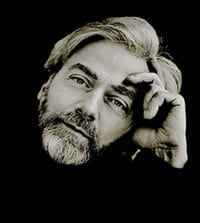 Since winning the 1975 Chopin Competition in Warsaw aged only 18, the great Polish pianist Krystian Zimerman has held a special place among the world’s finest interpreters of Chopin. This first of two special Chopin birthday concerts provides a rare opportunity to hear this revered and dazzling artist play the composer’s Funeral March Sonata in B flat minor and the mighty Third Sonata in B minor side by side. [Chopin Birthday Concert 2 will feature Maurizio Pollini on March 1]
Since winning the 1975 Chopin Competition in Warsaw aged only 18, the great Polish pianist Krystian Zimerman has held a special place among the world’s finest interpreters of Chopin. This first of two special Chopin birthday concerts provides a rare opportunity to hear this revered and dazzling artist play the composer’s Funeral March Sonata in B flat minor and the mighty Third Sonata in B minor side by side. [Chopin Birthday Concert 2 will feature Maurizio Pollini on March 1]
27 Febuary 2010, 3 pm
Peter Donohoe – Chopin Masterclass
Southbank Centre – Purcell Room / Queen Elizabeth Hall
The popular British pianist Peter Donohoe is one of music’s great communicators. Long admired for his powerful and richly coloured interpretations of the Romantic repertoire from the 19th century, in this session he brings his expertise on Chopin to a special masterclass for a selection of exciting young pianists drawn from the London music colleges. Alexey Chernov will play Trzy Mazurki, Op. 50; Shuenda Wong will play Polonez-fantazja As-dur, Op. 61; and Bing Bing Li will play Preludia, Op. 28.
Chopin in Walnut Creek, CA
On Sunday, February 28, the Contra Costa Performing Arts Society presents a musical celebration on the eve of Chopin’s 200th birthday. Program: Ballade No. 1, Barcarolle, Polonaise op. 53, Nocturne in F minor op. 55, #1, Scherzo No. 1, and selections from Preludes, Etudes, Piano Trio, Cello Sonata. Musicians include Peter Bedrossian, Chris Erwin, Karen Heather, Arlene Lee, Welton Lee, Hye Yeong Min, Martin Morley, Annie Nalezny, David Olachea, and Nancy Rude. Also on the program will be poetry selections read by Caria Tomczykowska, President – Polish Arts And Culture Foundation, with special guest M.C. and performer, Dr. William Wellborn, Vice President of the Chopin Society – San Francisco Chapter.
Sunday, February 28, 2010 at 2 p.m.
Chopin Concert
Grace Presbyterian Church
2100 Tice Valley Blvd., Walnut Creek, CA
Chopin at MIDEM
![]() This year, for the first time, the MIDEM Classical trade show gave out the awards dedicated to music of Frederic Chopin: “The Best Ever” Award, for the best recording of Chopin’s works in history, and “New Recordings” Award, for the best Chopin recording of the past year. The awards were presented on January 25 as part of MIDEM Classical Award celebrations. The Special Chopin Awards were established to celebrate the 200th birthday of Frederic Chopin by the National Chopin Institute in Warsaw.
This year, for the first time, the MIDEM Classical trade show gave out the awards dedicated to music of Frederic Chopin: “The Best Ever” Award, for the best recording of Chopin’s works in history, and “New Recordings” Award, for the best Chopin recording of the past year. The awards were presented on January 25 as part of MIDEM Classical Award celebrations. The Special Chopin Awards were established to celebrate the 200th birthday of Frederic Chopin by the National Chopin Institute in Warsaw.
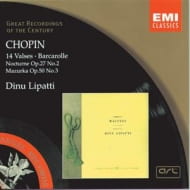 “The Best Ever” Prize was awarded to the EMI Classics recording of 14 Waltzes, Barcarolle, Nocturne in D flat Major, and Mazurka in C sharp Minor made by the late Romanian pianist Dinu Lipatti. The “New Recordings” Award was given to the Onyx Classics recording of Preludes op. 28 and Sonata in B flat Minor by Russian pianist Nikolai Demidenko.
“The Best Ever” Prize was awarded to the EMI Classics recording of 14 Waltzes, Barcarolle, Nocturne in D flat Major, and Mazurka in C sharp Minor made by the late Romanian pianist Dinu Lipatti. The “New Recordings” Award was given to the Onyx Classics recording of Preludes op. 28 and Sonata in B flat Minor by Russian pianist Nikolai Demidenko.
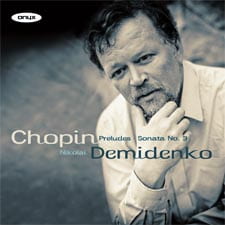 The award gala was co-sponsored by the Frederic Chopin National Institute. The Best Ever Award was a one-off award, given just this year. However the New Recordings Award will be presented each year to the best Chopin recording of the year. For a complete list of MIDEM Classical winners please visit MIDEM 2010 website.
The award gala was co-sponsored by the Frederic Chopin National Institute. The Best Ever Award was a one-off award, given just this year. However the New Recordings Award will be presented each year to the best Chopin recording of the year. For a complete list of MIDEM Classical winners please visit MIDEM 2010 website.
Polish presentation at the 2010 MIDEM is a part of Chopin year celebrations and is titled “Polska. More than Chopin”. The Polish pavilion will be placed in the Classic & Jazz section of the MIDEM floor. The artistic concept of the pavilion was conceived last year by Boris Kudlička and Jurek Jagoda and the final design was done by Hanna Tylżanowska. It combines the black of the piano with the national white and red. Polish pavilion will include exhibitions by (in alphabetical order): Adam Mickiewicz Institute, Association of Polish Music, BCD Records Bartosz Uryga, BeArTon (Classical Record Company), Black Coffee Music, Dux, Fryderyk Chopin Institute, Kraków Festival Office, Legato Artist Management, Ludwig van Beethoven Association, MUSICON, National Audiovisual Institute, Polskie Radio SA, Subito, Wratislavia Cantans Festival, and Wrocław Philharmonic. On January 26 there was also a concert of young Polish pianist, Jaś Lisiecki, with Sinfonia Cracovia.
[Source: muzyka.onet.pl]
Chopin at Peabody Mason Competition
This year the Peabody Mason International Piano Competition (17-22 May 2010) will feature an all-Chopin program. A completed application must include the following (by postal services) and must be postmarked by 15 April 2010. All performers will be expected to perform a Nocturne, a Mazurka, a large-scale work, and one more solo work of another category by Chopin. Candidates will be judged solely on the basis of their playing, both on CD/DVD and live (see www.peabodymasonpianocompetition.com for application details and a repertoire list).
The competition will have four rounds: Rounds 1-3 will be based on the CD or DVD, and the final round will be held in Boston, MA, from 17-22 May 2010, during which time finalists will be invited to attend master classes given by the jury members. The First Prize award will include $10,000 as well as a public concert in a hall in the Boston area, to be arranged according to the schedule of the winner and the organizers.
Peabody Mason Piano Competition
192 Commonwealth Avenue, Suite 4
Boston, MA 02116
Phone: (617) 266-3314
Email: info@peabodymasonpianocompetition.com
Yundi on Chopin
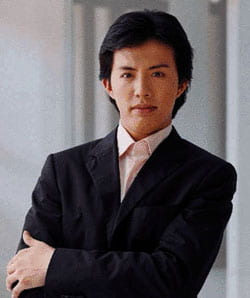 Pianist Yundi (formerly known as Yundi Li) has long been a champion of the music of Chopin, and this anniversary year will be no different. Called the “Prince of the Piano” in his native China, Yundi burst onto the international stage when he won the 14th International Frederic Chopin Piano Competition in Warsaw in 2000. With this honor, he became the first pianist since 1985 to be awarded the First Prize and, at 18, also the youngest, as well as the first from China.
Pianist Yundi (formerly known as Yundi Li) has long been a champion of the music of Chopin, and this anniversary year will be no different. Called the “Prince of the Piano” in his native China, Yundi burst onto the international stage when he won the 14th International Frederic Chopin Piano Competition in Warsaw in 2000. With this honor, he became the first pianist since 1985 to be awarded the First Prize and, at 18, also the youngest, as well as the first from China.
In January, EMI Classics announced that it has signed an exclusive contract with Yundi. This partnership will produce recordings of all of Chopin’s works for solo piano —the first volume of the series, the complete Nocturnes, will be released in March. Watch a video of Yundi recently performing Nocturne No. 2 on YouTube, or listen to an interview on NPR from 2005.
In addition to recording, Yundi will have a busy schedule during the Chopin Year, including: a Chopin Birthday Concert in Warsaw on March 1; recitals in Hong Kong, Beirut, Eindhoven, London (Royal Festival Hall, March 16), Dortmund, Luxembourg, Strasbourg, Porto, Abu Dhabi, New York (Carnegie Hall, May 20), Paris, Frankfurt, Munich and Milan; and concerto engagements with the Toronto Symphony Orchestra and Yannick Nézet-Séguin, as well as the Hong Kong Philharmonic and San Francisco Symphony.
[Sources: Gramophone Magazine, EMI Classics]
Hommage à Chopin
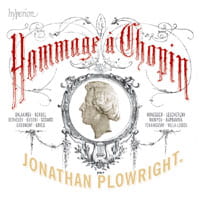 On February 9, a new disc by British pianist Jonathan Plowright will be released by Hyperion records— Hommage à Chopin(CDA67803)—featuring a fascinating selection of works dedicated to or inspired by Chopin. The disc is currently available for pre-purchase on Amazon.com.
On February 9, a new disc by British pianist Jonathan Plowright will be released by Hyperion records— Hommage à Chopin(CDA67803)—featuring a fascinating selection of works dedicated to or inspired by Chopin. The disc is currently available for pre-purchase on Amazon.com.
According to Hyperion Records,
Chopin’s unique style of piano writing was to utterly transform the way in which composers wrote for and thought about the instrument. Few escaped some aspect of that legacy until the early years of the twentieth century; and few pianists have not had Chopin’s music in their concert repertoire. Small wonder that so many composers and pianist-composers—major and minor—have felt moved to pay their respects to a musician for whom there is almost universal approbation.
Composers whose works are included on this disc are: Mili Balakirev (1837-1910); Franz Bendel (1833-1874); Edvard Grieg (1843-1907); Ferruccio Busoni (1866-1924); Eduard Nápravník (1839-1916); Pyotr Tchaikovsky (1840-1893); Arthur Honegger (1892-1955); Sir Lennox Berkeley (1903-1989); Heitor Villa-Lobos (1887-1959); Federico Mompou (1893-1987); Benjamin Godard (1849-1895); Leopold Godowsky (1870-1938); and Theodor Leschetizky (1830-1915).
Recently called “one of the finest living pianists” by the prestigious Gramophone Magazine, Jonathan Plowright has focused on Polish romantic piano repertoire. Many of his recent recordings have either included works by or have been entirely dedicated to Chopin, I. J. Paderewski, or Paderewski’s student, Sigismund Stojowski. Plowright has been invited to perform with the Warsaw Philharmonic Orchestra during the Chopin Year. He will also return to the Polish Music Center’s Paderewski Lecture-Recital series and the Paderewski Festival in Paso Robles this fall.
For more Chopin recordings released recently, please see our Discography section.
Chopin Events In Poland
Third International Chopin Congress
 Under the patronage of the Polish Ministry of Culture and National Heritage, the Fryderyk Chopin Institute in Warsaw will host the Third International Congress—Chopin 1810-2010:
Under the patronage of the Polish Ministry of Culture and National Heritage, the Fryderyk Chopin Institute in Warsaw will host the Third International Congress—Chopin 1810-2010:
Ideas – Intepretations – Influence, from 25 February to 1 March 2010—to commemorate the 200th anniversary of the birth of Fryderyk Chopin. All Congress sessions will take place in the Old Library of the University of Warsaw.
The first Congress took place in Warsaw in 1960 under the aegis of the Institute of Musicology at the University of Warsaw. The Second Congress, organized in 1999 by the Polish Chopin Academy, was devoted to “Chopin and his Work in the Context of Culture.”
The Third International Congress will encompass a broad thematic spectrum, focusing in particular on the ideas that inspired Chopin’s oeuvre, interpretative responses to it, and the influences that it has had on the music of other composers as well as on other forms of artistic endeavor and human activity. Thematic areas of scholarship to be explored during the Congress session are: Chopin’s personality, heritage and milieu; Interpretations of Chopin’s music; The influence of Chopin and his music; and Chopin in contemporary culture. PMC collaborators such as Irena Poniatowska (Conference Chair), Zbigniew Skowron, Maciej Gołąb, Maja Trochimczyk (former PMC Director), Halina Goldberg, and Jeffrey Kallberg are among the many distinguished musicologists who will present and/or chair sessions during the Chopin Congress. For a complete listing of all topics and scholars, please see: kongres-program2.pdf
In addition to the formal conference program, concerts will be held and a commemorative plaque will be unveiled at Kazimierz Palace. Also, the new Fryderyk Chopin Museum will be opened in the Ostrogski Castle.
Bank of Poland Celebrates Chopin
 National Bank of Poland is joining the Chopin birthday celebrations with a release of special, collectible banknote, valued at 20 PLN. The design of the note, created by Grzegorz Pfeifer and Katarzyna Jarnuszkiewicz, features the image of Frederic Chopin on both sides with a piano, manuscript fragments, and picture of Chopin’s birthplace in Żelazowa Wola.
National Bank of Poland is joining the Chopin birthday celebrations with a release of special, collectible banknote, valued at 20 PLN. The design of the note, created by Grzegorz Pfeifer and Katarzyna Jarnuszkiewicz, features the image of Frederic Chopin on both sides with a piano, manuscript fragments, and picture of Chopin’s birthplace in Żelazowa Wola.
This is only the 4th time in the bank’s history that it has issued a collectible bill. The previous commemorative banknotes included the 50 PLN bill dedicated to Pope John Paul II in 2006, the 10 PLN bill celebrating the 90th anniversary of Polish independence in 2008, and the 20 PLN note celebrating the 200th birthday of Juliusz Słowacki in 2009.
This is not the first time in the history of Polish currency that Chopin was featured. In 1982 National Bank of Poland issued a 5000 zł bill featuring Frederic Chopin’s profile.
The banknote will be sold exclusively by the Kolekcjoner service at www.kolekcjoner.nbp.pl and will be available by March. Learn more at www.nbp.pl.
[Sources: rmfclassic.pl; muzyka.onet.pl]
Birthday Concerts at Warsaw Phil
Monday, 22 February, 7.30 p.m.
Symphonic Concert – Rafał Blechacz (piano) and the Warsaw Philharmonic Orchestra, Antoni Wit (conductor)
Programme: Fryderyk Chopin: Piano Concerto in F minor, Op. 21 (1829-1830); Robert Schumann – Symphony No. 2 in C major, Op. 61
Warsaw Philharmonic Concert Hall
Tuesday, 23 February, 7.30 p.m.
Symphonic Concert – Ivo Pogorelić (piano) with the Sinfonia Varsovia, George Tchitchinadze (conductor)
Programme: Fryderyk Chopin: Piano Concerto in F minor, Op. 21
Warsaw Philharmonic Concert Hall
Wednesday, 24 February, 5 p.m.
Piano Recital – Murray Perahia, piano
Programme: works by Fryderyk Chopin
Warsaw Philharmonic Concert Hall
Wednesday, 24 February, 9 p.m.
Piano Recital – Piotr Anderszewski, piano
Programme: Robert Schumann, Karol Szymanowski
Warsaw Philharmonic Concert Hall
Thursday, 25 February, 7.30 p.m.
Piano Recital – Garrick Ohlsson, piano
Programme: Fryderyk Chopin: Impromptu in F sharp major, Op. 36 (1839); Ballade in A flat major, Op. 47 (1841); Fantasy in F minor, Op. 49 (1841); Nocturnes, Op. 27 (1833-1836) in C sharp minor No. 1 and in D flat major No. 2; Scherzo in C sharp minor, Op. 39 (1839); Nocturnes, Op. 9 (before 1832) in B flat minor No. 1, in E flat minor No. 2 and in B major No. 3; Sonata in B flat minor, Op. 35 (Marche funèbre, before 1839)
Warsaw Philharmonic Concert Hall
Friday, 26 February, 7.30 p.m.
Symphonic Concert – Kevin Kenner (historical piano), Nelson Goerner (historical piano), and Janusz Olejniczak (historical piano) with the Orchestra of the 18th Century, Frans Brüggen (conductor)
Programme: Chopin’s Works for Piano and Orchestra
[One of five concerts in the Chopin’s music on historical instruments series – Kraków, Bydgoszcz, Katowice, Gdańsk, Warsaw]
Warsaw Philharmonic Concert Hall
Saturday, 27 February, 7.30 p.m.
Symphonic Concert – Nikolai Demidenko (piano) and Evgeny Kissin (piano) with the Warsaw Philharmonic Orchestra, Antoni Wit (conductor)
Programme: Fryderyk Chopin: Piano Concerto in F minor, Op. 21 (1829-1830) (Evgeny Kissin) and Piano Concerto in E minor, Op. 11 (1830) (Nikolai Demidenko)
Warsaw Philharmonic Concert Hall
Sunday, 28 February, 7.30 p.m.
Piano Recital – Daniel Barenboim, piano
Programme: Fryderyk Chopin: Fantasy in F minor, Op. 49 (1841); Nocturne in D flat major, Op. 27 No. 2 (1833-1836); Sonate in B flat minor, Op. 35 (1839, Marche funèbre before 1839); Barcarola in F sharp major, Op. 60 (1846); Waltzes; Berceuse in D flat major, Op. 57 (1844); Polonaise in A flat major, Op. 53 (1842)
Warsaw Philharmonic Concert Hall
[Source: chopin.nifc.pl]
Other Chopin concerts in February
- Lublin Philarmonic (Feb 22)
- Baltic Philharmonic in Gdańsk (Feb 11, 21-28)
- Łódź Philharmonic (Feb 26)
Chopin Opera in Wrocław
 On January 30, Wrocław Opera premiered its staging of Giacomo Orefice’s opera Chopin. The work is based on historical facts from the life of the great Polish pianist and composer. The opera was first performed on November 25, 1901, in the Teatro Lirico in Milan. The opera was very well received and for the next 30 years was performed in many European countries as well as Australia and Argentine.
On January 30, Wrocław Opera premiered its staging of Giacomo Orefice’s opera Chopin. The work is based on historical facts from the life of the great Polish pianist and composer. The opera was first performed on November 25, 1901, in the Teatro Lirico in Milan. The opera was very well received and for the next 30 years was performed in many European countries as well as Australia and Argentine.
Giacomo Orefice (1865 – 1922) was a pianist and composer, representative of the Italian verisimo style. He wrote 10 operas, including Marisca, also based on Polish themes. He also wrote symphonies, cello concertos, sonatas and chamber music. He was fascinated by Chopin, and had visited Poland on several occasions to get to know the homeland of the composer. Orefice was present at the premier of the opera Chopin in 1904.
The libretto was written by Angelo Orvieto and set to the original piano music of Frederic Chopin. Giacomo Orefice is responsible for selecting over one hundred fragments of Chopin’s mazurkas, ballades, sonatas, scherzos, nocturnes and etudes. He combined them and orchestrated them using the Italian bel canto style. Through the selection of fragments, Orefice painted a musical picture of Chopin – a sensitive, fragile genius, who loved his homeland and longed for his family.
The Wrocław Opera staging was prepared by Ewa Michnik (musical direction), Laco Adamik (direction), Barbara Kędzierska (set and props) and Magdalena Tesławska (costumes). The part of Frederic Chopin is performed by Steven Harrison, who, in addition to vocal studies, is a concert pianist—Harrison performs on the piano in the second act. The opera also features Mariusz Godlewski (as Elio – Chopin’s childhood friend), Evgenija Kuznetsova (Stella – Chopin’s sister), Ewa Vesin (Georges Sand – Chopin’s lover). Soloists are accompanied by the orchestra, choir and ballet of the Wrocław Opera.
The opera will run in Wrocław through February 7. For more information, please visit www.opera.wroclaw.pl.
[Sources: culture.pl; rmfclassic.pl; muzyka.onet.pl]
Pianists in Photographs
“Pianists,” an exhibition of 30 portraits photographed by Juliusz Multarzyński, was opened in the foyer of the National Philharmonic in Warsaw as part of the Chopin Year celebrations. The photographs show world piano stars, mostly laureates of the Chopin Competition: Halina Czerny-Stefańska, Adam Harasiewicz, Martha Argerich, Krystian Zimerman, Garrick Ohlsson, Dang Tai Son, Stanisław Bunin, Yundi Li, Rafał Blechacz, Grigorij Sokolov, Nelson Freire, Ivo Pogorelic, Piotr Paleczny, Janusz Olejniczak, Ewa Pobłocka and Lang Lang among others.
The photographs were collected over many years and were shot mostly at the National Philharmonic, but also at the Grand Theater-National Opera, International Festival “Chopin and the Colors of Autumn” and other places.
Artist photographer Juliusz Multarzyński has collaborated with the Grand Theater-National Opera, Warsaw National Philharmonic, Frederic Chopin National Institute and numerous other Polish institutions and festivals. In 2006, he has established an internet portal dedicated to classical music, opera and ballet—visit his website at maestro.net.pl.
[Source: culture.pl]
Paderewski 150th
150th Anniversary of Paderewski’s Birth – From Tarnów to Paso Robles
By Wiesław Szczupak
Gazeta Ekstra – Galicja (translated and reprinted by permission)
Young pianists from Tarnów will perform in concerts in California upon the invitation of Paso Robles officials, cooperating with the representatives of the Tarnów Region. Paso Robles is a town where Ignacy Jan Paderewski spent considerable amount of time and had his vineyards. The wines produced in that region are prized today among the connoisseurs. Paso Roblans organize the annual Paderewski Festival where, in 2010, young pianists from Tarnów are scheduled to perform. These young talents will also participate in the master classes and other musical events that are being coordinated by the Polish Music Center at the University of Southern California in Los Angeles.
Following a cultural exchange agreement with Paso Robles City officials, signed last year by Mieczysław Kras, Supervisor of the Tarnów Region, young American pianists visited Kąśna Dolna last summer to study piano and participate in workshops and concerts. They were also visiting Poland to learn about the homeland of the Great Master. In 2010 two finalists in the local Talent Week Competition will travel to Paso Robles to participate in similar piano workshops. They will also demonstrate their pianistic abilities during the Paderewski Festival there.
“I’m very pleased to see that the cooperation between our two very distant cities is working out so nicely,” Supervisor Kras said during a press conference. “The exchange program with Paso Robles is an excellent item on the calendar of cultural events planned in the Tarnów Region, especially since 2010 will be the Paderewski Year both here and in California.”

“2010 will not only be the Paderewski Year; it will also be a year of Chopin’s 200th anniversary, and Chopin was Paderewski’s favorite composer,” said Marek Zebrowski, pianist, composer and Director of the Polish Music Center at USC in Los Angeles. “Because of this, we’re organizing a Chopin Marathon Concert in Los Angeles in March and will have several interesting concerts in Paso Robles. We’re already preparing the November 2010 edition of the Paderewski Festival in Paso Robles, and would like to invite two young pianists from Poland, Marian Michalski and Barbara Doroszuk, who are currently studying piano at the Tarnów School of Music.”
There are many other ideas for celebrating the Paderewski Year, including making a film about Paderewski in Kąśna Dolna and unveiling of a commemorative plaque in Kuryłówka, Paderewski’s birthplace in the Podolia Region of the Ukraine. Marek Zebrowski was invited for a short visit toTarnów in December 2009, where he conducted piano workshops for students of the Tarnów Music School.
[Photo credit: Wiesław Szczupak]
Chopin & Paderewski class
 The Jagiellonian University School of Polish Language and Culture invites students to attend the 2010 Summer School of Polish Language and Culture, which will take place from 5 July to 15 August in Krakow. This year’s edition of the Summer School will celebrate two important anniversaries in Polish history: the bicentennial of the birth of Fryderyk Chopin, the greatest of Polish composers, and the centennial of the foundation of the Grunwald monument in Kraków, funded by famous Polish pianist, composer, and statesman Ignacy Jan Paderewski.
The Jagiellonian University School of Polish Language and Culture invites students to attend the 2010 Summer School of Polish Language and Culture, which will take place from 5 July to 15 August in Krakow. This year’s edition of the Summer School will celebrate two important anniversaries in Polish history: the bicentennial of the birth of Fryderyk Chopin, the greatest of Polish composers, and the centennial of the foundation of the Grunwald monument in Kraków, funded by famous Polish pianist, composer, and statesman Ignacy Jan Paderewski.
In honor of these anniversaries, the Summer School will offer a new music course entitled “Music at the Time of Chopin and Paderewski (1810–1910)” from July 15-23. The course will discuss various phenomena of Polish music written between 1810 and 1910, with a particular emphasis on Chopin and Paderewski, as well as their contemporaries (e.g. Kurpiński, Elsner, Moniuszko, and Szymanowski). More information about Jagiellonian University’s 2010 Summer School and the new music course can be found at www.uj.edu.pl/SL.
Call for papers: Chopin & Paderewski in Chicago
 In honor of the 200th anniversary of the birth of Fryderyk Chopin and the 150th anniversary of the birth of Ignacy Jan Paderewski, the Polish Studies Program, the Departments of History, Modern Languages and Literatures, Fine and Performing Arts, Political Science, and the International Studies Program at Loyola University Chicago plan to host an international and interdisciplinary conference Chopin & Paderewski 2010, on November 11-13, 2010. The first goal of the conference is to examine the legacy of Fryderyk Chopin (March 1, 1810-0ctober 17, 1849) as a composer and a great master of Romantic music. The second goal of the conference is to examine the legacy of Ignacy Jan Paderewski (November 6, 1860-June 29, 1941) as a pianist, composer, statesman, diplomat, art collector, philanthropist, and the third Prime Minister of Poland. The final goal is to place Chopin, Paderewski and the “Polish question” in the context of American and world politics of the nineteenth and twentieth centuries. One of the possible topics for discussion is the policy of national self-determination advocated by the administration of President Woodrow Wilson.
In honor of the 200th anniversary of the birth of Fryderyk Chopin and the 150th anniversary of the birth of Ignacy Jan Paderewski, the Polish Studies Program, the Departments of History, Modern Languages and Literatures, Fine and Performing Arts, Political Science, and the International Studies Program at Loyola University Chicago plan to host an international and interdisciplinary conference Chopin & Paderewski 2010, on November 11-13, 2010. The first goal of the conference is to examine the legacy of Fryderyk Chopin (March 1, 1810-0ctober 17, 1849) as a composer and a great master of Romantic music. The second goal of the conference is to examine the legacy of Ignacy Jan Paderewski (November 6, 1860-June 29, 1941) as a pianist, composer, statesman, diplomat, art collector, philanthropist, and the third Prime Minister of Poland. The final goal is to place Chopin, Paderewski and the “Polish question” in the context of American and world politics of the nineteenth and twentieth centuries. One of the possible topics for discussion is the policy of national self-determination advocated by the administration of President Woodrow Wilson.
Panel proposals and individual papers are hereby solicited. Panels will be conducted in the following formats: (1) Three or four papers, chair, and commentator. Panel submissions should total three pages and include the following information: the name of each panelist; each participant’s institutional affiliation and rank with contact information including a working e-mail address and phone number of each panelist. (2) A roundtable with a chair and participants. A panel proposal should include a brief rationale, the title, and a short abstract of each paper, followed by the name of the panel’s contact person. Each panelist should include a brief resume. Individual paper submissions should include: the title and a short abstract of the paper (up to 500 words), contact information and a one page C.V.
The preliminary deadline for receipt of proposals is April 30, 2010.
Electronic submissions are preferred. Please send Word documents to the Director of Interdisciplinary Polish Studies, Bozena Nowicka McLees—e-mail: bmclees@luc.edu.Mail hard copies to Chopin & Paderewski 2010 Conference, Loyola University Chicago, Department of Modern Languages and Literatures, 1032 W. Sheridan Road., Chicago, IL 60660.
News
Hail to the Unknown! Reviewing the Life of Roman Maciejewski
By Marek Zebrowski
 The year 2010 marks several important anniversaries in the history of Polish music. The bicentennial of Chopin’s birth will resonate worldwide with a multitude of tributes of all kinds—concerts, lectures, and piano competitions. The sesquicentennial of Paderewski’s birth in November will likewise attract its share of commemorative events in Poland and the United States. One important anniversary, however, also occurs this year and is less likely to attract great attention: the centenary of the birth of Roman Maciejewski on 28 February 2010.
The year 2010 marks several important anniversaries in the history of Polish music. The bicentennial of Chopin’s birth will resonate worldwide with a multitude of tributes of all kinds—concerts, lectures, and piano competitions. The sesquicentennial of Paderewski’s birth in November will likewise attract its share of commemorative events in Poland and the United States. One important anniversary, however, also occurs this year and is less likely to attract great attention: the centenary of the birth of Roman Maciejewski on 28 February 2010.

In spite of having studied with some of the most important figures of twentieth century music—Karol Szymanowski and Nadia Boulanger, among others—Maciejewski’s music is still generally unknown. With a few notable exceptions, Maciejewski’s considerable achievements as a pianist, composer, and choral conductor in Poland, France, Sweden, England, and the United States, has passed virtually unnoticed even in his lifetime. Thanks to the indefatigable efforts of his family—especially his younger brother, Wojciech—Maciejewski’s legacy has been gradually unveiled during the years following the composer’s death in 1998.
Roman Maciejewski was born in Berlin to Polish parents. He began his music education there and when Poland regained her independence in 1919, his family relocated to Poland. After studying in Poznań and appearing as a pianist, he moved to Warsaw in 1931, where he studied composition with Kazimierz Sikorski. Maciejewski was one of the student strikers in Warsaw, protesting the removal of Karol Szymanowski from his post as president of Warsaw Conservatory. His actions led to his expulsion from school but did not prevent Maciejewski from embarking on a concert tour of southern Europe in 1933. By 1934 he was studying with Nadia Boulanger on a scholarship in Paris, where he befriended Artur Rubinstein, Francis Poulenc, and Igor Stravinsky, among others.
 Invited by the Royal College of Music, Maciejewski settled in England in 1938 and married a Swedish dancer, Elvi Gallen. Visiting Sweden with his bride on the eve of World War II, Maciejewski remained there for the next decade. In 1950 he divorced his wife and left Swedenfor England. A year later he arrived in the United States on the invitation of Artur Rubinstein. He settled in Southern California and devoted himself to his duties as organist in the Polish Church inLos Angeles. Averse to commissions (Maciejewski turned down Rubinstein who wanted a Piano Concerto written for him) and lucrative job offers (refused music directorship of the MGM Studios), he instead continued to work on his monumental Requiem – Missa pro defunctis for soloists, chorus and orchestra. Maciejewski began his Requiemduring the war years in Sweden and completed it in 1959 in California. Over fifteen years of effort on this extraordinary musical statement dedicated to the “Victims of Human Ignorance, Victims of Wars of all Times, Victims of Tyrants’ Torture, Victims of Human Lawlessness, and Victims of the Violation of the Divine Order of Nature” led to a triumphant world premiere of the Requiem at the Warszawska Jesień Festival in 1960. Public and critical reception was just as enthusiastic following the American premiere of Maciejewski’s Requiem at the Music Center in Los Angeles in 1975.
Invited by the Royal College of Music, Maciejewski settled in England in 1938 and married a Swedish dancer, Elvi Gallen. Visiting Sweden with his bride on the eve of World War II, Maciejewski remained there for the next decade. In 1950 he divorced his wife and left Swedenfor England. A year later he arrived in the United States on the invitation of Artur Rubinstein. He settled in Southern California and devoted himself to his duties as organist in the Polish Church inLos Angeles. Averse to commissions (Maciejewski turned down Rubinstein who wanted a Piano Concerto written for him) and lucrative job offers (refused music directorship of the MGM Studios), he instead continued to work on his monumental Requiem – Missa pro defunctis for soloists, chorus and orchestra. Maciejewski began his Requiemduring the war years in Sweden and completed it in 1959 in California. Over fifteen years of effort on this extraordinary musical statement dedicated to the “Victims of Human Ignorance, Victims of Wars of all Times, Victims of Tyrants’ Torture, Victims of Human Lawlessness, and Victims of the Violation of the Divine Order of Nature” led to a triumphant world premiere of the Requiem at the Warszawska Jesień Festival in 1960. Public and critical reception was just as enthusiastic following the American premiere of Maciejewski’s Requiem at the Music Center in Los Angeles in 1975.
At the height of his success in America and the moment when further commissions were forthcoming, Maciejewski decided to leave California. At first he spent some time on the Canary Islands and then travelled around Europe, visiting Poland and attending the funeral of his mother. The last two decades of Maciejewski’s life were spent in Sweden. A chance encounter in a music shop in Gothenburg, where he bought a piano on an impulse, led to his settling there permanently. Maciejewski died in Gothenburg on 30 April 1998 and his ashes were transported for a burial in Leszno, Poland, on 3 June of that year.
Roman Maciejewski composed music throughout his life—his first works date from the late 1920s and his last from around 1990. Maciejewski’s musical language was quite eclectic and is best epitomized by his monumental Requiem, where a successful synthesis of different musical styles—from the Baroque to the twentieth century Neo-classicism—testifies to the composer’s wide-ranging fascination with a variety of compositional techniques developed throughout the history of music. His writing for orchestra is as skillful as it is rich in highly refined colors and textures. Maciejewski’s use of orchestra undoubtedly owes a great deal to the orchestral sound of Debussy and Ravel, especially the latter, whose methods of melodic and motivic development are also evident in the Requiem. On the other hand, Maciejewski’s works for piano and orchestra generally belong to the early twentieth century neoclassical style as represented by Stravinsky and Bartok. As a gifted pianist, Maciejewski composed several works for piano and orchestra, works for two pianos, piano transcriptions, and a small but interesting body of chamber music.
Maciejewski’s Mazurkas for solo piano are the other important pillar in the catalogue of his works. His first set, Cztery Mazurki [Four Mazurkas], was written in Poland in the late 1920s; he added to them during the 1940s and 1950s in Sweden and the United States, and revisited the genre during the last decades of his life in Sweden. About thirty of Maciejewski’s Mazurkas have been published; dozens more remain in manuscript as many of them were left unfinished. Besides the Mazurkas of Chopin and Szymanowski, those by Maciejewski form a significant addition to the piano repertoire inspired by folk music in Poland. In his Mazurkas Maciejewski builds upon the legacy of Chopin and Szymanowski, creating an expressive style and language very much of his own.
Maciejewski’s activities as choral director in Los Angeles naturally led to several choral works, both secular and religious, a cappella and with organ accompaniment. Still another aspect of his wide-ranging interests blossomed during his stay in Sweden, when Maciejewski met Ingmar Bergman. This chance encounter led Maciejewski to compose stage music for several of Bergman’s productions during the 1940s, including Camus’ Caligula and Macbeth.

With such a rich and varied catalogue of compositions, one can only speculate on the reasons for their absence from the concert repertoire. Some blame could be assigned to the composer, who rarely sought the spotlight and did not actively pursue performance opportunities for his music. Maciejewski was a prolific composer who definitely had a lot to say in his works, but his bursts of creative activity were at times followed by long periods away from music. His intellectual restlessness and curiosity led him on occasion to pursue projects only to abandon them later. His Requiem was a great exception in his modus operandi—for with this work, Maciejewski wholeheartedly invested his artistic credo and fifteen years of his life. His pacing of work was consistently, even stubbornly, independent of all kinds of constraints and deadlines, and Maciejewski habitually returned to compositions already finished in order to revise and refine them. Often—as is the case with several of his Mazurkas—several alternate versions exist and the chronology of their evolution is now impossible to establish. For most of his life Maciejewski composed for his own pleasure and only towards the end of his life he reluctantly entrusted a desk full of manuscripts to his brother, Wojciech. Sorting through over one hundred compositions (apparently several others were lost) will undoubtedly require many years of dedicated and painstaking work. Given such an extraordinary and unusual talent, and the importance of this composer in the history of modern Polish music, Maciejewski’s compositions should be brought to the concert stage in the years to come. Such is, at least, the hope that the one hundredth anniversary of Maciejewski’s birth brings about this year.
 One such celebration will take place at Westminster Cathedral on February 4, with the UK premiere of Maciejewski’s monumental Requiem – Missa pro defunctis. The BBC Symphony Orchestra, the BBC Singers and the BBC Symphony Chorus will combine forces with conductor Michał Dworzyński and soloists Olga Pasichnyk (soprano), Agnieszka Rehlis (mezzo-soprano), Aleš Briscein (tenor), and Tomasz Konieczny bass. This concert is supported by the Adam Mickiewicz Institute and is part of Polska! Year. It will be broadcast on the BBC Radio 3.
One such celebration will take place at Westminster Cathedral on February 4, with the UK premiere of Maciejewski’s monumental Requiem – Missa pro defunctis. The BBC Symphony Orchestra, the BBC Singers and the BBC Symphony Chorus will combine forces with conductor Michał Dworzyński and soloists Olga Pasichnyk (soprano), Agnieszka Rehlis (mezzo-soprano), Aleš Briscein (tenor), and Tomasz Konieczny bass. This concert is supported by the Adam Mickiewicz Institute and is part of Polska! Year. It will be broadcast on the BBC Radio 3.
4 February 2010, 7:00 pm
UK premiere: Roman Maciejewski’s Requiem – Missa pro defunctis
Westminster Cathedral – Victoria Street, London SW1
Details: www.barbican.org.uk
[Photo source: Maciejewski Family collection – used by permission]
Zieliński American Premiere
 The Signature Symphony Orchestra, conducted by Piotr Sułkowski, performed Maciej Zieliński’s Musica per archi A. D. 1993 on January 23, 2010 in Tulsa, OK. The program also included Tchaikovsky’s Serenade for strings and the Adagietto from Mahler’s V Symphony. Zieliński’s Musica per archi was the Polish accent of the evening and a rare opportunity for American audiences to hear the music of one for the more talented young Polish composers. Zieliński is mostly known in Poland for his film and TV soundtracks to such titles as Gry uliczne, Nigdy w życiu, Dublerzy, Dlaczego nie!, as well as TV serial Kryminalni.
The Signature Symphony Orchestra, conducted by Piotr Sułkowski, performed Maciej Zieliński’s Musica per archi A. D. 1993 on January 23, 2010 in Tulsa, OK. The program also included Tchaikovsky’s Serenade for strings and the Adagietto from Mahler’s V Symphony. Zieliński’s Musica per archi was the Polish accent of the evening and a rare opportunity for American audiences to hear the music of one for the more talented young Polish composers. Zieliński is mostly known in Poland for his film and TV soundtracks to such titles as Gry uliczne, Nigdy w życiu, Dublerzy, Dlaczego nie!, as well as TV serial Kryminalni.
[Source: pwm.com.pl]
Quintophoniq Premiere Performance
 Quintophoniq is a joint musical endeavor of friends who are deeply interested in both jazz and classical music, especially the works of Chopin. All accomplished musicians in their own right, the group includes Tomasz Gołębiewski, Concertmaster of the Łódź Philharmonic, his partner in the Q4Q Duo, violinist Małgorzata Korpysz, and Leszek Kułakowski, a visionary of Polish jazz, along with drummer Jacek Pelc and bassist Piotr Kułakowski of the Leszek Kułakowski Trio. The project combines the classical violin sound with the typical textures of a jazz trio ensemble. Other composers and musicians collaborating on this project include Krzesimir Dębski, Krzysztof Herdzin, Leszek Kułakowski, Adam Manijak, Paweł Serafiński, Maciej Strzelczyk, Michał Urbaniak and Jan Walczyński, who are composing works for violin duos and jazz trios.
Quintophoniq is a joint musical endeavor of friends who are deeply interested in both jazz and classical music, especially the works of Chopin. All accomplished musicians in their own right, the group includes Tomasz Gołębiewski, Concertmaster of the Łódź Philharmonic, his partner in the Q4Q Duo, violinist Małgorzata Korpysz, and Leszek Kułakowski, a visionary of Polish jazz, along with drummer Jacek Pelc and bassist Piotr Kułakowski of the Leszek Kułakowski Trio. The project combines the classical violin sound with the typical textures of a jazz trio ensemble. Other composers and musicians collaborating on this project include Krzesimir Dębski, Krzysztof Herdzin, Leszek Kułakowski, Adam Manijak, Paweł Serafiński, Maciej Strzelczyk, Michał Urbaniak and Jan Walczyński, who are composing works for violin duos and jazz trios.
The Quintophoniq Project will make its debut appearance on 27 February 2010 at the Artur Rubinstein Philharmonic in Łódź, featuring special guest and Hammond organ virtuoso, Paweł Serafiński. The concert program will include: Jacek Delong – Trufle w butonierce; Krzesimir Dębski – Sound From Serengeti and Bajan Duke of Dingac; Krzysztof Herdzin – Dytyramb podwójny and Transcendencja świąteczna; Leszek Kułakowski – Moje Gołębie serce and Mister Q for Q2Q; Jan Walczyński – Kołowyrka; Adam Manijak – Ślepa uliczka; Zbigniew Namysłowski – Zmagania; Paweł Serafiński – Uni Cat and MovieScore; Maciej Strzelczyk – Song for Jan; and Michał Urbaniak – UrbTime.
Future concerts will take place at the Baltic Philharmonic in Gdańsk (March 13) and the Lublin Philharmonic (March 27), with composer and violinist Krzesimir Dębski (pictured below with Gołębiewski and Korpysz) as special guest.
27 February 2010 | 7:00 pm
Premiere performance of the Quintophoniq Project
Artur Rubinstein Philharmonic
ul. Narutowicza 20/22, 90-135 Łódź, Poland
Tickets: bilety@filharmonia.lodz.pl
Radio Ensembles In Trouble
Announcement of the Citizen’s Committee for Public Media in regards to radio music ensembles
The Citizen’s Committee for Public Media would like to express deep concern regarding information about the plans for the Polish Radio Board to discontinue financial support for music ensembles existing in the structures of Polish Radio: Polish Radio Orchestra, Polish Radio Chamber Orchestra “Amadeusz,” Polish Radio Choir in Kraków, and information about the Polish Radio cancelling their contract with the National Polish Radio Symphony Orchestra in Katowice. The reduction of the culture-making activities of Polish Radio is being supported by the Board due to the decrease in revenue from Radio and Television public subscription.
Radio music ensembles are kept by most of renowned European radio stations. The number of these ensembles in Poland is smaller than in other European Union countries, both in terms of per capita and gross national product. Considering the specific mission of radio ensembles—which among others covers archival recordings, filling repertoire niches, or performances of contemporary works—such goals are not possible to achieve by ensembles outside of the public media circles. Polish radio ensembles have reached and maintain a very high artistic standard. Ensembles like these are built over a period of time; however they can be destroyed with one stroke of a pen. The effects of such decisions are irreversible and destroy the work and efforts of several generations.
Polish culture cannot suffer because of the political games around public media any longer. We ask: of the Polish government – for intervening with additional funding for the radio music ensembles; of the National Radio and Television Board – for financial clarity and documentation of the funds dedicated to mission activities and culture-making activities, and to restrain from such drastic and irreversible decisions which would damage Polish culture and reduce the civility of Polish society.
Warsaw, 3 December, 2009
[The original version of this open letter in Polish is available at: www.zkp.org.pl]
* * *
 According to the Polish newspaper Wiadomości, the above letter was written in response to the fact that the Silesian regional government and Polish Radio Board no longer wish to co-support the National Polish Radio Symphony Orchestra (NOSPR) in Katowice. In the light of failed talks between the two bodies, the board of Polish Radio has sent a letter to Katowice which would cancel the NOSPR’s contract. The decision will take effect in a year.
According to the Polish newspaper Wiadomości, the above letter was written in response to the fact that the Silesian regional government and Polish Radio Board no longer wish to co-support the National Polish Radio Symphony Orchestra (NOSPR) in Katowice. In the light of failed talks between the two bodies, the board of Polish Radio has sent a letter to Katowice which would cancel the NOSPR’s contract. The decision will take effect in a year.
Public Radio chairman, Jarosław Hasiński, expressed that he had hoped for the involvement of the local government to sustain the ensemble. He pointed out that, so far, the government has been interested only in the headquarters of the orchestra, not the actual artistic group. Such an attitude would result in the loss of significant support funds, since this outstanding orchestra has been supported with money from the European Union. Jarosław Hasiński remarked that the government of Katowice and Silesia want to save 5 million PLN of the money that would be invested in the ensemble, however they will lose approx. 120 million from Brussels.
There is hope, however, to work out a solution with the government of Kraków to save the Polish Radio Choir. Also negotiations in Poznań have been positive regarding the saving of the Amadeus Polish Radio Chamber Orchestra. The Polish Radio Board is also negotiating with the City of Warsaw and Mazovian government to save the Polish Radio Orchestra in Warsaw.
[Sources: wiadomosci.polska.pl; zkp.org.pl]
Call For Funds: Paderewski Scholarship Fund
The Ignacy Jan Paderewski Scholarship Program at The Fund for American Studies brings exceptional Polish students to Washington, DC, to study at The Fund’s Georgetown Institutes. It provides an opportunity for Polish students to study and work in our nation’s capital and learn first-hand about American government and way of life so that they can then apply this knowledge in building a secure and democratic Poland. The program is still significantly short of its scholarship goal as of February.
Paderewski’s legacy should be perpetuated for two main reasons. First, he wrote the Thirteenth of President Woodrow Wilson’s Fourteen War Aims, which called for the rebirth of a free and independent Poland. If Paderewski had not made this recommendation to President Wilson, there would be no free Poland today. Secondly, Paderewski is an ideal role-model for Polish youth. He possessed a sterling character and was described by Clemenceau as “one of God’s most noble creatures.”
The Paderewski Scholarship honors Ignacy Jan Paderewski, one of the 20th century’s greatest men. The Polish composer, pianist, statesman and philanthropist exemplifies the best of the human spirit, and his life’s work proved how education and the arts nurture freedom and democracy.
The scholarship itself was established by Gen. Edward Rowny (U.S.A.-ret.), who formed a distinguished military career in World War II, Korea, and Vietnam before going on to serve as an ambassador for Presidents Reagan and George H. W. Bush. General Rowny has had a life-long appreciation for Paderewski’s accomplishments, and he hopes that the scholarship will encourage young people to learn about and appreciate the virtues that Paderewski embodied. For further details see www.paderewskirowny.com.
A contribution to support the Ignacy Jan Paderewski Scholarship Program will provide opportunities to today’s Polish students by honoring the unique achievements of one of the fathers of modern-day Poland. Donations are now being solicited for the fifth Paderewski Scholarship winner, which will be awarded in the Spring of 2010.
Please consider supporting this worthwhile endeavor – donations may be made at www.tfas.org.
Musical Anniversaries In Poznań
Poznań Music Academy Celebrates 90 Years
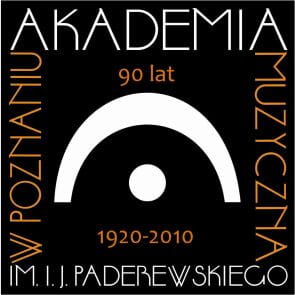 The Ignacy Jan Paderewski Music Academy in Poznań is celebrating its 90th anniversary with twenty distinctive concerts. The celebrations will conclude with legendary singer Wiesław Ochman receiving an honorary doctorate from the Academy.
The Ignacy Jan Paderewski Music Academy in Poznań is celebrating its 90th anniversary with twenty distinctive concerts. The celebrations will conclude with legendary singer Wiesław Ochman receiving an honorary doctorate from the Academy.
The intention of these anniversary concerts is to fully showcase the artistic activities of the Paderewski Academy. The inaugural concert took place on January 15 and featured pianist Przemysław Witek, accompanied by the school’s Symphony Orchestra under the baton of Marek Pijarowski. The program included works by Feliks Nowowiejski, Peter Tchaikovsky and Witold Lutosławski. The closing gala will take place on October 16, with the performance of The Endless Day, a work commissioned by the school from composer Janusz Stalmierski.
To honor the patron of the school, Ignacy Jan Paderewski, on April 19 the school will present a concert titled “Born in 1860. Paderewski – Wolf – Mahler,” featuring songs by these composers. The concert will be a part of the “Musica practica, musica theoretica. Musical Culture of the XX and XXI centuries. Contexts and confrontations” International Conference.
The celebrations will take place under the patronage of the Polish Ministry of Culture and National Heritage.
Poznań Grand Theater Celebrates 100 Years
 The Stanisław Moniuszko Grand Theater in Poznań is celebrating its 100th anniversary this year. Numerous events in celebration of the artistic longevity of the institution are planned throughout the year, many of which will be made available for the price of symbolic 1 PLN. The theater was opened in 1910 with the performance of Mozart’s Magic Flute. As part of the celebrations, that same work will sound once more on the stage of the theater. It has been confirmed that Berlin Staatsoper will bring their staging of the famous opera to Poznań this year. “It will be the same as 100 years ago, when we were just a satellite of the Berlin theater,” said Michał Znaniecki, director of the theater. Znaniecki also announced that numerous artists and institutions have declared their willingness to participate.
The Stanisław Moniuszko Grand Theater in Poznań is celebrating its 100th anniversary this year. Numerous events in celebration of the artistic longevity of the institution are planned throughout the year, many of which will be made available for the price of symbolic 1 PLN. The theater was opened in 1910 with the performance of Mozart’s Magic Flute. As part of the celebrations, that same work will sound once more on the stage of the theater. It has been confirmed that Berlin Staatsoper will bring their staging of the famous opera to Poznań this year. “It will be the same as 100 years ago, when we were just a satellite of the Berlin theater,” said Michał Znaniecki, director of the theater. Znaniecki also announced that numerous artists and institutions have declared their willingness to participate.
The construction of the new German City Theater in Poznań, designed by Max Littmann, was started in the spring of 1909 and the building was completed a little over a year later. On September 30, 1910 the theater showed the first staging, Mozart’s Magic Flute, conducted by Franz Gottscheid. In 1919, when the building was taken over by Polish administration, the theater was renamed “The Grand Theater of the City of Poznań,” under the direction of conductor Adam Dołżycki. Since then the company has presented 656 premieres of opera, ballet, operetta and musical theater repertoire, as well as symphonic and oratorio works. Currently there are 40 operas and 15 ballets in the repertoire of the company.
Kaczmarek’s Anniversary Gift to Poznań
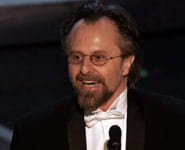 World renowned composer and Oscar winner, Jan A. P. Kaczmarek ,will be the most played composer in the Poznań Grand Theater starting this fall. The composer will write the tune that will sound before every show as a gift in celebration of the 100th anniversary of the Grand Theater. It will premiere before the Berlin Staatsoper performance of the Magic Flute on September 10. The gift was Kaczmarek’s idea and the theater did not set any guidelines for the composition. “The gong must be short, uncomplicated and serve the simple purpose of informing the audience that the show is about to begin,” according to Michał Grudziński, coordinator of the 100th anniversary celebrations.
World renowned composer and Oscar winner, Jan A. P. Kaczmarek ,will be the most played composer in the Poznań Grand Theater starting this fall. The composer will write the tune that will sound before every show as a gift in celebration of the 100th anniversary of the Grand Theater. It will premiere before the Berlin Staatsoper performance of the Magic Flute on September 10. The gift was Kaczmarek’s idea and the theater did not set any guidelines for the composition. “The gong must be short, uncomplicated and serve the simple purpose of informing the audience that the show is about to begin,” according to Michał Grudziński, coordinator of the 100th anniversary celebrations.
[Sources: muzyka.onet.pl, muzyka.onet.pl, muzyka.onet.pl]
Kraków Opera Musical Salon
 On February 6, the latest production of the Kraków Opera will premiere on the chamber stage of the new opera house. The show entitled Śpiewam miłosny rym [I sing a love rhyme], directed by Włodzimierz Nurkowski, revives the musical salon traditions of gathering around the piano to perform the compositions of young artists, singing songs and conversing about art.
On February 6, the latest production of the Kraków Opera will premiere on the chamber stage of the new opera house. The show entitled Śpiewam miłosny rym [I sing a love rhyme], directed by Włodzimierz Nurkowski, revives the musical salon traditions of gathering around the piano to perform the compositions of young artists, singing songs and conversing about art.
The stage play will focus on the most beautiful choral songs of Polish composers, including Eugeniusz Pankiewicz, Zygmunt Noskowski, Mieczysław Karłowicz and Stanisław Niewiadomski. Also in the program are mazurkas, polonaises and nocturnes by Frederic Chopin, whose art will also be reflected in poems by C. K. Norwid. The artistic direction of the play is by Marek Kluza.
[Source: muzyka.onet.pl]
Grella-Mozejko Performance
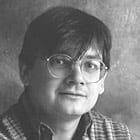 Société Tonus Vivus – Society for New Music, the Edmonton-based non-profit promoter, is presenting Montréal’s world-renowned saxophone quartet, QUASAR, for its first New Music Alberta Concert of 2010. They will perform WIDDERSHINS (le monde merveilleux du Marquis de Sade) for sax quartet and electronic sounds by Polish-Canadian composer, Piotr Grella-Mozejko. Also on the program are compositions by Iannis Xenakis, Frank Zappa, Colin Labadie, Michael Matthews and Gilles Tremblay.
Société Tonus Vivus – Society for New Music, the Edmonton-based non-profit promoter, is presenting Montréal’s world-renowned saxophone quartet, QUASAR, for its first New Music Alberta Concert of 2010. They will perform WIDDERSHINS (le monde merveilleux du Marquis de Sade) for sax quartet and electronic sounds by Polish-Canadian composer, Piotr Grella-Mozejko. Also on the program are compositions by Iannis Xenakis, Frank Zappa, Colin Labadie, Michael Matthews and Gilles Tremblay.
Originally formed in 1995 and based in Montréal, Québec, Quasar champions the works of contemporary composers – most notably those of Canada, but many international names as well. Quasar is comprised of: Marie-Chantal Leclair (Artistic Director) – soprano saxophone, Mathieu Leclair – alto saxophone, André Leroux – tenor saxophone, and Jean-Marc Bouchard – baritone saxophone. Praised as “spectacular” (The Halifax Chronicle-Herald) and “fascinating” (Journal Le Devoir), the ensemble explores diverse aspects of musical artistic creation from instrumental, through improvisation, to live electronics, and instrumental theatre. They are celebrating their 15th anniversary, bringing with them a program including brand new pieces commissioned by and written for the Quartet.
Senior Musician House
 The permit has been issued for construction of the Senior Musician House near Góra Kalwaria. The foundation overseeing the project has waited for several years for the permit to be reviewed and issued. The House will be built on a donated parcel in Kąty, near Góra Kalwaria, and the design of the house was also a donation. In the future the house will serve approximately 50 residents, and will be only the second such institution in Europe. According to Zofia Wit, chairman of the foundation, such a house will be of great help to senior musicians.
The permit has been issued for construction of the Senior Musician House near Góra Kalwaria. The foundation overseeing the project has waited for several years for the permit to be reviewed and issued. The House will be built on a donated parcel in Kąty, near Góra Kalwaria, and the design of the house was also a donation. In the future the house will serve approximately 50 residents, and will be only the second such institution in Europe. According to Zofia Wit, chairman of the foundation, such a house will be of great help to senior musicians.
The board of the Senior Musician House includes such noted musicians as Ewa Podleś, Irena Santor, Kazimierz Kord, Konstanty Andrzej Kulka, Wiesław Ochman, Janusz Olejniczak, Krzysztof Penderecki, Stefan Sutkowski, Krzysztof Jakowicz, Bogusław Kaczyński, Jacek Kaspszyk, Wojciech Kilar, Izabela Kłosińska, Krzysztof Knittel, Anna Lubańska, Włodzimierz Nahorny, Zbigniew Namysłowski, Tadeusz Strugała, Michał Urbaniak, Henryk Wojnarowski and Jan Ptaszyn Wróblewski.
Construction will cost approximately 15 million PLN (or $5 mil. USD). Funding is provided by the European Union as well as donations from artists and institutions. Also, all Polish citizens have the opportunity to donate 1% when filing for their tax return.
[Source: wiadomosci.polska.pl]
Kosciuszko Fdn – Nat’l Polish Center Merger
 NEW YORK & WASHINGTON, D.C. (press release excerpt) — Kosciuszko Foundation President and Executive Director Alex Storozynski has announced that the foundation has acquired the National Polish Center (NPC) and has added Al Koproski and Julian Kulski to its board of trustees.
NEW YORK & WASHINGTON, D.C. (press release excerpt) — Kosciuszko Foundation President and Executive Director Alex Storozynski has announced that the foundation has acquired the National Polish Center (NPC) and has added Al Koproski and Julian Kulski to its board of trustees.
Mr. Storozynski said, “This is an exciting alliance that expands the Polish community’s presence in our nation’s capital. We want all Polish-Americans to think of this as their headquarters in Washington, D.C. And we invite members of the U.S. Congress and all branches of government to visit our office on 2025 O Street in Washington D.C. to learn about Polish contributions to life, liberty and culture in America.”
NPC Chair Patricia Koproski said, “For years, the National Polish Center and the Kosciuszko Foundation have had the same goal, to promote Polish culture, science and scholarship in America. With the economies of scale, this marriage makes perfect sense, and together, we become stronger and can do even more to educate future generations of Polish scholars and leaders.”
The Kosciuszko Foundation’s Board of Trustees Chairman, Joseph E. Gore, Esq. said, “By joining forces with our organization, NPC members become part of a rich heritage that dates back to 1925. The Kosciuszko Foundation has promoted Polish culture in America for 85 years, and given fellowships to numerous doctors, attorneys, artists, professors, and people such as the economist Leszek Balcerowicz whose ‘shock therapy’ policies helped turn Poland into the fastest growing economy in Europe.”
The Foundation is named after Thaddeus Kosciuszko, the Polish General who devised the winning strategy for the U.S. Continental Army at the Battle of Saratoga, the turning point of the American Revolution. Kosciuszko also drafted the plans for West Point that Benedict Arnold tried to sell to the British, and suggested that the Fortress be used as a Military Academy. After the revolution, Kosciuszko presented his salary from the U.S. Army, $17,000, to Thomas Jefferson, with the instructions that the money be used to purchase black slaves and free them. Kosciuszko then returned to Europe, where he started a revolution to end serfdom and liberate burghers, peasants and Jews.
The KF works to strengthen the relations between the peoples of Poland and the United States through educational, scientific and cultural exchanges. It holds annual competitions, such as the prestigious Chopin competition and awards up to one million dollars per year in scholarships.
The Kosciuszko Foundation Inc.,
American Center of Polish Culture
15 East 65th Street
New York, NY 10065-6501
Phone (212) 734-2130
Fax: (212) 628-4552
Kosciuszko Foundation
Washington DC Office
2025 O Street, NW
Washington, DC 20036-5913
Phone : (202) 785-2320
Fax: (202) 785-2159
Kosciuszko Foundation
Warsaw Office
Nowy Swiat 4, Room 11800-497
Warsaw, Poland
Tel./Fax:011-48-22-621-7067
Awards
Polityka Passport Awards
 This year marked the 17th time that the coveted Passport awards have been given by the periodical Polityka. The Passports are given in six artistic fields: film, theater, literature, popular and classical music, and visual art. During a gala in the National Theater in Warsaw the following artists received the honors.
This year marked the 17th time that the coveted Passport awards have been given by the periodical Polityka. The Passports are given in six artistic fields: film, theater, literature, popular and classical music, and visual art. During a gala in the National Theater in Warsaw the following artists received the honors.
- Classical Music: Barbara Wysocka for directing Phillip Glass’ opera Zagłada Domu Usherów [The Fall of the House of Usher] at the National Theater. Wysocka was also nominated in the Theater category for the same show.
- Popular Music: Łukasz Rostkowski (L.U.C.). for album 39/89 Zrozumieć Polskę[39/89 Understand Poland].
- Film ex-aequo: Borys Lankosz, for his debut feature film Rewers [Reverse] (Polish recommendation for the Academy Awards this year) and Xawery Żuławski, for adapting the novel Wojna polsko-ruska pod flagą biało-czerwoną [Polish-Russian war under the white-and-red flag] by Dorota Masłowska. This is the first time that the award was given to two artists in the same category.
- Theater: Sandra Korzeniak for portraying Marylin Monroe in the play Persona Tryptyk Marylin. The play, directed by Krystian Lupa, was staged by Teatr Dramatyczny in Warsaw.
- Literature: Piotr Paziński for the novel Pensjonat.
- Visual Art: Karol Radziszewski for his exhibition “Siusiu w torcik” [Pee in the cake], presented in Warsaw gallery Zachęta.
- The special award “Kreator Kultury” [Creator of Culture] went to Paweł Althamer, sculptor, performer, installation creator and video artist.
[Sources: wiadomosci.polska.pl; wyborcza.pl; wiadomosci.wp.pl]
“Young Poland” Stipends
On January 25, the State Secretary at the Ministry of Culture and National Heritage, Piotr Żuchowski, presented the laureates of the “Młoda Polska” [Young Poland] program with diplomas for the 7th edition of this national stipend program. The annual “Młoda Polska” program is designed for young Polish artists (under 35 years of age) who have shown extraordinary achievements in the fields of music, visual arts, dance, theater, film, literature and artistic critique. This year there were 458 candidates for the award, of which 87 young artists were chosen. Among the chosen are artists of a young age but with considerable artistic achievements, including: Marcin Bartnikowski (theater), Sylwia Chutnik (literature), Renata Piotrkowska (dance), Szymon Rogiński (photography), violinist Maxima Sitarz (music), Joanna Zielińska (visual arts).
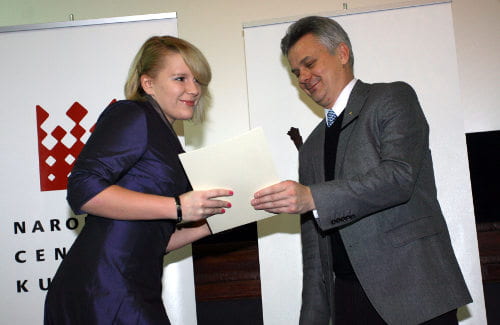
The stipend is intended to provide resources for these young artists to further their artistic achievements and make progress in their careers. The funds can be used to realize specific artistic projects, continue studies, pursue artistic ventures abroad, or purchase instruments or other equipment necessary for creative work.
[Source: www.mkidn.gov.pl]
2009 Top 10 Classical Album
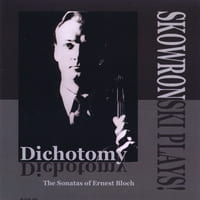 Skowronski Plays! -DICHOTOMY- Sonatas of Ernest Bloch
Skowronski Plays! -DICHOTOMY- Sonatas of Ernest Bloch
Vincent P. Skowronski, violin; Dana Brown, piano
Skowronski: Classical Recordings S:CR-09
According to Mia Clarke, Classical Editor for Time Out Chicago Magazine, Polish violinist Vincent P. Skowronski’s most recent release, Dichotomy ranks No. 7 for 2009. Read Clarke’s entire list at: chicago.timeout.com.
Editor Mia Clarke also explored Skowronski’s lengthy career in her feature article for Time Out Chicago Magazine, “Inside the studio of violin master Vincent P. Skowronski.” In her article, Clarke invites the reader to “step inside the peculiar world of iconoclast-violinist Vincent P. Skowronski” for a discussion with this former competitor in the Tchaikovsky Competition in Moscow. She describes the scene as she enters: “Skowronski, dubbed by American Record Guide as ‘clearly one of the best violinists in America,’ bids goodbye to his guest, longtime collaborator and pianist Saori Chiba. In 1995, the two traveled to Rome to give a private performance for Pope John Paul II. His friend ushered away, the 65-year-old regales us with tales from more than 50 years of professional playing.” Read more at chicago.timeout.com.
Polish Festival Honored
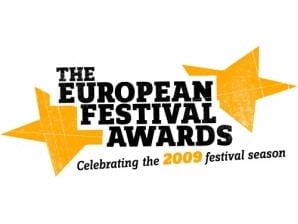 The winners of the inaugural European Festival Awards were unveiled at a ceremony at the Grand Theatre in Groningen, the Netherlands, during the Eurosonic Noorderslag festival. The popular music festival in Poland, the Heineken Open’er Festival, walked away with the Best Major Festival prize.
The winners of the inaugural European Festival Awards were unveiled at a ceremony at the Grand Theatre in Groningen, the Netherlands, during the Eurosonic Noorderslag festival. The popular music festival in Poland, the Heineken Open’er Festival, walked away with the Best Major Festival prize.
According to Artistic Director of the festival, Mikołaj Ziółkowski, it is very uncommon for a festival to build a European trademark as quickly as the “Open’er” has. Only eight successful festival years were enough to overtake competition that has been in the business for much more time. The competition in the nominated group was tough with such entries as Roskilde Rockwerchter and Glastonbury.
Speaking about the European Festival Awards Steve Jenner, Festival Awards Ltd. co-director, commented: “We are delighted to affirm that the inaugural European Festival Awards has been a great accomplishment for us in terms of the volume of interest and participation generated on a pan-European level by both the public and industry, which surpassed our expectations for year one.
[Source: eu.virtualfestivals.com; wiadomosci.polska.pl]
Festivals
Unsound Festival New York
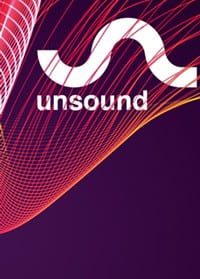 Since 2003, the Unsound Festival has brought a bold, international and uniquely modern program of music to Kraków. Now, with seven festivals in its native city under its belt, and outpost events further east in cities like Minsk, the Polish Cultural Institute and Goethe-Institut in New York bring Unsound west for the first ever North American edition, running from February 4-14 in venues around New York City.
Since 2003, the Unsound Festival has brought a bold, international and uniquely modern program of music to Kraków. Now, with seven festivals in its native city under its belt, and outpost events further east in cities like Minsk, the Polish Cultural Institute and Goethe-Institut in New York bring Unsound west for the first ever North American edition, running from February 4-14 in venues around New York City.
The Unsound Festival New York boasts an ambitious lineup of artists from both Europe and the US. Never before has such a range of producers and musicians from Eastern Europe been assembled to perform alongside their U.S. and West European counterparts. Festival performers include: techno artists Jacek Sienkiewicz (Poland), Petre Inspirescu (Romania) and Marcin Czubała (Poland); minimalist composer Jacaszek (Poland); experimentalist Zavoloka (Ukraine); bass mutator TRG (Romania); new-music ensemble Kwartludium (Poland); dub electronic artist Pavel Ambiont (Belarus); and drone specialist Zenial (Poland). Unsound Festival New York also features the US live debut of the Moritz Von Oswald Trio (Germany), the US debut of Vladislav Delay (Finland) & Lillevan’s audio / video performance, a special program of the music of Polish composer Henryk Mikołaj Górecki, classical interpretations of the music of infamous US punk noise label SST, two nights of noise, drone and experimental work, a Brooklyn electronic music showcase, two nights at the Bunker featuring the very best in contemporary Techno / House and a special Bass Mutations showcase dedicated to dubstep and beyond.
Other features and events of the Festival include: an exhibition of historical Polish Sound Postcards; a special series of events dedicated to and inspired by Andy Warhol; Kids Patch—a special kids-only workshop in electronic music; and a thought-provoking series of panel discussions, workshops and unique film screenings at Goethe-Institut New York Wyoming Building.
Presented by Poland’s Fundacja Tone, the Polish Cultural Institute in New York and Goethe-Institut New York, in cooperation with a truly vast range of cultural institutes, local curators, organizations and venues both over and underground, the focus here is on cooperation, a positive vision of globalization and cross-border communication that has made this project a reality.
Events at the Wyoming Building, the festival opening at Lincoln Center, and Empire Groupshow at (Le) Poisson Rouge are free. To find out more details about the festival, please visit the official website: unsound.pl.
[Source: Polish Culture Inst NY]
LOTOS Jazz Festival
 This year’s edition of LOTOS Jazz Festival [Bielska Zadymka Jazzowa] will last 5 days and includes 14 concerts featuring some of the brightest stars of European and World jazz. Starting on February 2, the audience will have a chance to hear such artists as the Igor Butman Quartet, the Magic Malik Orchestra, Jazzanova, Dee Dee Bridgewater and McCoy Tyner. The concerts will be accompanied by photo exhibitions and other musical happenings.
This year’s edition of LOTOS Jazz Festival [Bielska Zadymka Jazzowa] will last 5 days and includes 14 concerts featuring some of the brightest stars of European and World jazz. Starting on February 2, the audience will have a chance to hear such artists as the Igor Butman Quartet, the Magic Malik Orchestra, Jazzanova, Dee Dee Bridgewater and McCoy Tyner. The concerts will be accompanied by photo exhibitions and other musical happenings.
In addition to established artists, the festival will also feature younger musicians from around the world as well as new trends in jazz and jazz-related music. On February 3 there will be a “Musical Hyde Park,” during which the many gathered musicians will perform their favorite compositions. The happening will conclude with all of them performing the anthem of the festival, Na holi, na holi.
On February 6, during the “Gala in the Theater,” awards for participants in the accompanying competition will be presented. The evening will be headlined by Andrzej Jagodziński Trio with his project “Chopin” and by Dee Dee Bridgewater. The festival will conclude with the “Open Concert” in collaboration with the Jazz Music Department of the Katowice Music Academy and the “Final Concert” performed by the French group Fanga.
Zadymka has been organized for 11 years now by artists affiliated with the Art Theater Society and under the direction of Jerzy Batycki. The dates for the festival have always been set in winter, when the Beskidy Mountains are visited by many tourists. The concerts take place both in contemporary spaces like the Climate Club or Hotel President as well as in older spaces like the Polish Theater or Szyndzielnia Hostel. For more information, please visit www.zadymka.pl.
[Source: culture.pl]
Performances
Anderszewski Chamber Concert Review
by Daniel Kamiński
Pianist Piotr Anderszewski visited Los Angeles for a series of concerts including a chamber performance of Dmitri Shostakovich’s Piano Quintet in G Minor, Op. 57 on January 26 and a performance of Ludwig van Beethoven’s Piano Concerto No. 1 in C Major, Op. 15 with Los Angeles Philharmonic on January 29, 30 and 31.
Widely considered to be one of the greatest pianists in the world, Piotr Anderszewski is of Polish-Hungarian descent. He was born in Warsaw, where he studied at the F. Chopin Music Academy. Later, he continued his studies at the conservatories in Strasbourg and Lyon. At 18 he spent a year in the Thornton School of Music at USC on a scholarship. He has also studied with Murray Perahia, Fou Ts’ong and Leon Fleisher. Since 2000 he has been an exclusive Virgin Classics artist.
Your reviewer was lucky enough to have experienced the January 26 LA Phil Chamber Music Society concert, which featured not so much Anderszewski as a soloist, but rather the musicians of the Los Angeles Philharmonic in various chamber configurations, reinforced by Anderszewski for the final piece of the program. The concert opened with Beethoven’s String Trio in C Minor, Op. 9, no. 3, performed by members of the LA Phil’s string section (Stacy Wetzel, violin; Minor Wetzel, viola; and David Garrett, cello). The performance was solid, if not slightly understated. Some of the faster passages lacked detail and definition, however the overall experience was esthetically very pleasing and set a great mood for the remainder of the concert.
The second work on the program was Franz Krommer’s Partita in E-flat Major, Op. 79. The piece was masterfully performed by members of the LA Phil’s wind section (Ariana Ghez and Anne Marie Gabriele, oboes; Lorin Levee and Monica Kaenzig, clarinets; Shawn Mouser and Michelle Grego, bassoons; Patricia Kindel, contrabassoon; Ethan Bearman and Bruce Hudson, horns). This piece was performed without a conductor, which for such a large chamber group is no small feat. The ensemble worked together as tightly as a great Swiss watch and delivered a stellar performance of this rarely performed work. The amount of energy combined with fantastic detail and beautiful sound made me crave more music from this grouping, however it was time for the intermission.
After the break, the audience was treated to Johann Sebastian Bach’s Sonata in E Minor, BWV 1034. The performance, which again featured two members of the Los Angeles Philharmonic joined by USC’s own Lucinda Carver on harpsichord, was nothing short of stunning. The flute performance of Catherine Ransom Karoly took my breath away; her command of the instrument and silky smooth timbre were simply outstanding. The trio, including cellist Jonnathan Karoly, worked closely yet effortlessly and created a masterful performance, one of which Bach himself would have been proud.
After such an excellent start to the second half of the concert, expectations for the final work were very high, especially considering that most of the audience had come to Wald Disney Concert Hall on Tuesday evening to hear Piotr Anderszewski play. The Piano Quintet in G Minor, Op. 57 by Dmitri Shostakovich is a rather challenging work, both technically and musically. In this performance Anderszewski’s partners included Associate Concert-master, violinist Bing Wang, violinist Varty Manouelian, Principal violist Carrie Dennis and cellist Ben Hong. There is just one word that could describe the performance of the quintet – awesome. This group of consummate musicians performed a masterful rendition of Shostakovich’s work, with attention to every detail, flawless technique, extraordinary energy and a beautiful, dark sound. Piotr Anderszewski fit right in, providing just the right amount soloistic flare without disturbing the intimate relation of the ensemble required in chamber music. Mr. Anderszewski’s command of the Steinway grand piano was stunning—the soft passages blended perfectly into the dark string quartet sound, yet the forte chords sounded like a full orchestral tutti. Although this work did not require anywhere near the technical dexterity and flare required by the Beethoven Piano Concertos, Anderszewski and his partners wowed the audience, which in turn rewarded the musicians with a long standing ovation.
 The Los Angeles Chamber Music Society presented a very well balanced program, with repertoire that was satisfying yet ambitious. The concert, in all its 4 acts, was a great experience, one that this listener will remember for a long time. Bravo LA Phil members! Bravo Mr. Anderszewski!
The Los Angeles Chamber Music Society presented a very well balanced program, with repertoire that was satisfying yet ambitious. The concert, in all its 4 acts, was a great experience, one that this listener will remember for a long time. Bravo LA Phil members! Bravo Mr. Anderszewski!
Read about Anderszewski’s performances of Beethoven’s Piano Concerto No. 1 with conductor Vasily Petrenko and the Los Angeles Philharmonic in Rick Schultz’s review for the Los Angeles Times: Vasily Petrenko conducts the Los Angeles Philharmonic.
AX & MA Showcase Chopin & Schumann
On Wednesday, January 27, pianist Emanuel Ax and cellist Yo-Yo Ma came to Walt Disney Concert Hall to showcase works by two 19th-century masters who were both born in the year 1810. The program of these towering figures of the performance world included: Schumann’s Adagio and Allegro, Fantasiestücke, and Five Pieces in Folk Style; Chopin’s Polonaise brillante and Sonata in G Minor; and Peter Lieberson’s Remembering Schumann (Commissioned by the Los Angeles Philharmonic).
This concert was presented by the L.A. Philharmonic, which wrote the following in its press release for the event:
The similarities between Chopin and Schumann are as remarkable as their differences. Innovators in piano composition as well as talented performers, both artists were prone to shyness, wore their respective hearts on their sleeves, had extraordinary memories and were uneasy with the thought of composing for orchestra. Additionally, both composers’ lives were marked by tragedy including Chopin’s poor health and his death at the age of 39, and Schumann’s suicide attempt before being institutionalized until his death. Conversely, Schumann was well-versed in the Classics and literature, but came from a non-musical family while Chopin was not widely read at all and came from a very musical family. And though both possessed formidable compositional minds, Schumann was more highly regarded as a critic than a composer at the time. In fact, he was responsible for introducing Chopin’s music to the German public.
Read Los Angeles Times writer Mark Swed’s review of the concert here: Yo-Yo Ma and Emanuel Ax at Disney Hall.
[Photo Credit: Lawrence K. Ho/Los Angeles Times]
Cholakyan Plays Chopin
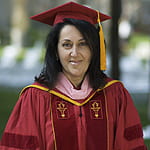 Having earned a Doctorate in Musical Arts from the Thornton School of Music in 2009, when she was bestowed the “Outstanding Doctoral Graduate” award, Russian pianist Angela Cholakyan has chosen to continue her career atUSC in the prestigious artist diploma program. On Sunday, January 31st at USC’s Newman Hall, Cholakyan performed her first Artist Diploma Recital. The first half of her recital was an all-Chopin program, in celebration of the composer’s 200th birthday.
Having earned a Doctorate in Musical Arts from the Thornton School of Music in 2009, when she was bestowed the “Outstanding Doctoral Graduate” award, Russian pianist Angela Cholakyan has chosen to continue her career atUSC in the prestigious artist diploma program. On Sunday, January 31st at USC’s Newman Hall, Cholakyan performed her first Artist Diploma Recital. The first half of her recital was an all-Chopin program, in celebration of the composer’s 200th birthday.
According to a USC News article entitled “From Russia With Music,” Cholakyan’s road to academic and artistic success has not been a smooth one. Although her road was mapped by the time she first touched a piano at 9 months old, it took her decades to escape the tight grip of communism that plagued her native Russia. Once she was able to leave the USSR, “USC Thornton School of Music professor Norman Krieger discovered [her] in 1993 at the Florida International Competition. It took 10 years, but Krieger eventually inspired her to go back to school ‘and get back on track’…” Prof. Krieger also spoke highly of his student in another write-up for the Glendale Press: “‘Her talents are equal as a performer and teacher,’ Krieger said. ‘That’s a tremendous gift and something to be applauded. She has a lot of charisma as a performer. But I think her most important quality is her generosity of spirit. She has the highest standard of musical morality and ethics.’”
Professor Norman Krieger and Angela Cholakyan will be joined by other graduate students of the Thornton School of Music performing a wide range of Chopin’s works during the PMC’s Chopin Anniversary Marathon on Saturday, March 27 beginning at 3:00 pm in Newman Hall.
[Sources: uscnews.usc.edu, www.glendalenewspress.com; Photo credit: Dietmar Quistorf, USC News]
Mario Feninger & Chopin’s Conquest
 On Sunday, January 24, octogenarian pianist Mario Feninger gave a discussion entitled “Chopin’s Conquest of Piano Technique” at the First Presbyterian Church of Inglewood, CA. His discussion was illustrated at the keyboard. Feninger was born in Cairo, Egypt, and received his
On Sunday, January 24, octogenarian pianist Mario Feninger gave a discussion entitled “Chopin’s Conquest of Piano Technique” at the First Presbyterian Church of Inglewood, CA. His discussion was illustrated at the keyboard. Feninger was born in Cairo, Egypt, and received his
early music training from his mother, Teresa De Rogatis, a noted pianist, guitarist, composer and teacher. He now resides in Los Angeles. Feninger will be performing recitals in London, Paris, and Italy this season.
[Source: Clickable Chamber Music Newsletter]
Trio Con Brio Copenhagen
 The Trio Con Brio Copenhagen has just finished their US tour with a concert for the Da Camera Society’s Chamber Music in Historic Sites series on January 24 in Pasadena, CA. The Trio—comprised of Soo-Jin Hong, violin, Soo-Kyung Hong, cello, and Jens Elvkjaer, piano—performed a program including Chopin’s Cello Sonata, Chopin’s Preludes, Op.28 (excerpts) and Ravel’s Trio in A Minor.
The Trio Con Brio Copenhagen has just finished their US tour with a concert for the Da Camera Society’s Chamber Music in Historic Sites series on January 24 in Pasadena, CA. The Trio—comprised of Soo-Jin Hong, violin, Soo-Kyung Hong, cello, and Jens Elvkjaer, piano—performed a program including Chopin’s Cello Sonata, Chopin’s Preludes, Op.28 (excerpts) and Ravel’s Trio in A Minor.
Formed in Vienna in 1999 and comprised of two Korean sisters and a Danish pianist, Trio Con Brio Copenhagen has won top prizes in international competitions including the ARD (Munich), Premio Vittorio Gui (Florence), Trondheim Chamber Music Competition (Norway) and the 2005 Kalichstein-Laredo-Robinson Competition (USA).
[Photo: Tue Schiørring; Source: Clickable Chamber Music Newsletter]
Kupiec Orchestral Performances
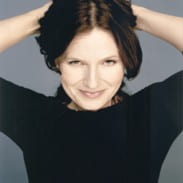 Polish pianist Ewa Kupiec made her debut with the Bern Symphony Orchestra on 7th and 8th of January, under conductor Mario Venzago. Kupiec performed Mozart’s Rondo KV 382 and Strawinsky’s Capriccio. She has also recently begun a collaboration with the Cadenza Consort of Salzburg, Germany.
Polish pianist Ewa Kupiec made her debut with the Bern Symphony Orchestra on 7th and 8th of January, under conductor Mario Venzago. Kupiec performed Mozart’s Rondo KV 382 and Strawinsky’s Capriccio. She has also recently begun a collaboration with the Cadenza Consort of Salzburg, Germany.
[Source: www.ewakupiec.com]
Discography
New Chopin Releases
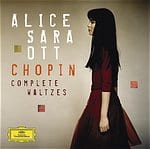 Chopin: Complete Waltzes
Chopin: Complete Waltzes
Alice Sara Ott, piano
Deutsche Grammophon 477 8095
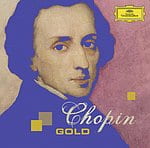 Chopin Gold
Chopin Gold
Pianists: Maurizio Pollini, Martha Argerich, Maria João Pires, Alice Sara Ott, Nelson Freire, Vladimir Ashkenazy, Rafał Blechacz, Hélène Grimaud, Emil Gilels, Daniel Barenboim, Arturo Benedetti Michelangeli, Zoltán Kocsis, Lang Lang, Nelson Freire, Vladimir Horowitz, Ivo Pogorelich, Friedrich Gulda, Mikhail Pletnev, and Sviatoslav Richter
Deutsche Grammophon 477 8727 (2 CD set)
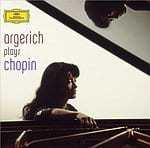 Argerich Plays Chopin
Argerich Plays Chopin
Ballade op. 23; Étude op. 10 No. 4; 8 Mazurkas from op. 24, op. 33, op. 41, op. 63, op. 59; 2 Nocturnes No. 15 op. 15,1 and No. 16 op. 55,2; Sonata No. 3 op. 58
Martha Argerich, piano
Deutsche Grammophon 477 7557
 Frédéric Chopin: Préludes op. 24 & Ballades op. 23 & 52
Frédéric Chopin: Préludes op. 24 & Ballades op. 23 & 52
Sheila Arnold, piano
CAvi-Music 4260085531837
This anniversary album was recorded by Sheila Arnold, an Indian-born pianist living in Germany, on an original Érard fortepiano (1839) at the WDR broadcast station in Cologne. The following is a reflection from the artist:
Of all Chopin’s works, I find that the two Ballades featured here (op.23 & op.52) and the twenty-four Preludes are some of his most impressive pieces for solo piano. The order chosen here reflects the way I experience these works:
The Ballade in G minor literally tells a story – with eloquence, rhetoric and associations of ideas.
But it ends in chaos and catastrophe.
That drama is followed by a wave of supposed happiness at the beginning of the Preludes op.28; however, it immediately dries up with the death knell in Prelude No. 2. The ensuing cycle confronts us with the lofty flights and abysmal depths of human existence. The last prelude in D minor ends with a final plunge and three shattering blows.
Once more we are faced with destruction and death.
Then we hear the Ballade op.52 – a reminiscence as if from afar, offering some sort of comfort. It almost sounds as if it is “not of this world”.
This music is agitated, too – but in the end it seems to cast a tranquilly detached eye on everything that has gone before.
[Source: openpr.com]
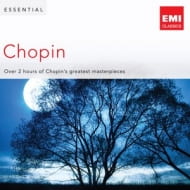 Essential Chopin
Essential Chopin
Disc 1: Waltzes: No. 1 in E flat Op. 18; Nocturnes: C sharp minor Op. posthumous; 4 Ballades: No. 3 in A flat major Op. 47; Fantaisie-impromptu in C sharp minor Op. 66; Preludes Op. 28 No. 4 in E minor; No. 7 in A major; Polonaise No. 3 in A ‘Military’ Op. 40 No. 1; Berceuse in D flat Op. 57; Waltzes: No. 11 in G flat, Op. 70/1; Nocturnes: No. 2 in E flat major Op. 9 No. 2; Piano Sonata No. 2 in B flat minor Op. 35: III. Marche funèbre; Waltz in D flat Op.64 No.1 ‘Minute’; Waltz in C sharp minor Op.64 No.2; Piano Concerto No. 1 in E minor Op. 11: II. Romanze; Mazurkas Nos.1-58: No.2 in C sharp minor, Op.6 No.2; Mazurkas Nos.1-58: No.5 in B flat major, Op. 7 No.1; Preludes Op. 28: No. 15 in D flat major “Raindrop”; No. 24 in D minor
Disc 2: Polonaise No. 6 in A flat ‘Heroic’ Op. 53; Barcarolle in F sharp minor, Op. 60; Mazurkas Nos.1-58: No.8 in A flat major, Op.7 No.4; Mazurkas Nos.1-58: No.23 in D major, Op.33 No.2; 27 Etudes Op. 10, 25 and posth: in E ‘Tristesse’ Op. 10/3; Piano Sonata No. 3 in B minor Op.58: IV. Finale; Waltzes: No. 3 in A minor Op. 34 No. 2; 4 Scherzos: No. 2 in B flat minor Op. 31; Waltzes: No. 9 in A flat major Op. 69 No. 1; 27 Etudes Opp. 10, 25 and posth: G flat, ‘Black Keys’, Op. 10/5; C minor, Op. 25/12; Nocturnes: No. 5 in F sharp major Op. 15 No. 2; Mazurkas Nos.1-58: No.24 in C major, Op.33 No.3; 3 Impromptus: No.1 in A flat Op.29; Andante Spianato And Grande Polonaise In E Flat Major Op.22
Various Artists
EMI5099968858728
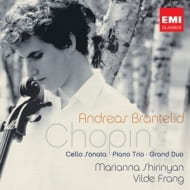 Chopin: cello music
Chopin: cello music
Frederic Chopin: Cello Sonata in G Minor Op. 65; Piano Trio in G Minor Op. 8; Grand Duo for Cello and Piano (on themes from Meyerbeer’s Robert le Diable)
Andreas Brantelid – cello; Marianna Shirinyan – piano; Vilde Frang – violin
EMI5099968774226
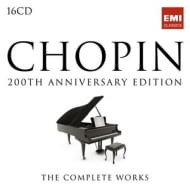 The Complete Chopin Edition – 200th anniversary
The Complete Chopin Edition – 200th anniversary
Frederic Chopin: recordings of complete catalog
Various Artists
EMI5099996711729
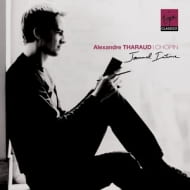 Chopin “journal intime”
Chopin “journal intime”
Frederic Chopin: Mazurka Op.63 No.3; Ballade No.1 Op.23; Mazurka Op.17 No.2; Mazurka Op.68 No.2; Fantasie Op.49; Nocturne Posthume; Mazurka Op.7 No.2; Ballade No.2 Op.38; Mazurka Op.17 No.4; Largo; Trois Ecossaises: No.1 Op.72 No.3; Trois Ecossaises: No.2 Op.72 No.4; Trois Ecossaises: No.3 Op.72 No.5; Contredanse; Fantaisie Impromptue Op.66; Nocturne Op.9 No.2
Alexandre Tharaud – piano
EMI5099968556525
 100 Best Chopin
100 Best Chopin
Frederic Chopin: Waltzes; Preludes; Ballades; Etudes; Nocturnes; Mazurkas on 6 CDs
Various Artists
EMI5099996704721
Even though most of the compilation recordings come from albums already released this collection should be of interest to any Chopin lover. Numerous world-renowned artists are featured on these compilations, including: Dinu Lipatti, Arthur Rubinstein, Claudio Arrau, Georges Cziffra, Martha Argerich, Daniel Barenboim, Stephen Kovacevich, Garrick Ohlsson, Mikhail Pletnev, Maurizio Pollini, Leif Ove Ansdnes, Nelsona Goernera and Ingrid Fliter. It is worth mentioning that Martha Argerich, Garrick Ohlsson and Maurizio Pollini are winners of the International Chopin Piano Competition.
[Source: muzyka.onet.pl]
Szymanowski Qtet
 Paris: Szymanowski, Ravel, Laks
Paris: Szymanowski, Ravel, Laks
Karol Szymanowski: Nocturne and Tarantella, Op. 28; Maurice Ravel: String Quartet in F major; Szymon Laks: String Quartet No. 3 (based on popular Polish themes)
Szymanowski Quartet
CAvi-Music 4260085531585
This recording is Volume I of a three-part CD series, in which the Szymanowski Quartet follows the tracks of its patron through three of the most important centers of European music at the beginning of the 20th century.
The first stop of this musical journey is Paris. Not only will Szymanowski be celebrated on these recordings, but also other composers who were popular at the time of Szymanowski’s journeys, as well as those whose music have been of direct influence on Szymanowski. Folklore and dance elements unify all three works on this recording. The string quartet by Laks was written after Szymanowski’s death, but is nevertheless connected to the same roots.
Parts 2 and 3 of this series the quartet will lead its listeners to Vienna and Moscow.
[Sources: szymanowski-quartet.com; avi-music.de]
New from DUX
 Moniuszko – Flis
Moniuszko – Flis
Stanisław Moniuszko: Excerpts from the opera Flis
Bogusław Bidziński – tenor, Janusz Lewandowski – bass-baritone, Michał Partyka – baritone, Leszek Skrla – baritone, Iwona Socha – soprano, Paweł Wolski – tenor, Choir and Orchestra of the Opera at the Castle, Warcisław Kunc – conductor
DUX0736
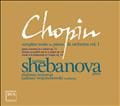 Fryderyk Chopin (1810-1849) Complete works for piano and orchestra vol. 1
Fryderyk Chopin (1810-1849) Complete works for piano and orchestra vol. 1
Chopin: Fantasy on Polish Airs in A major Op.13; Rondo a la Krakowiak in F major Op.14; Piano Concerto in E Minor Op. 11
Tatiana Shebanova – piano, Sinfonia Iuventus, Tadeusz Wojciechowski- conductor
DUX0741
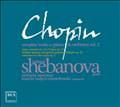 Fryderyk Chopin (1810-1849) Complete works for piano and orchestra vol. 2
Fryderyk Chopin (1810-1849) Complete works for piano and orchestra vol. 2
Chopin: Variations in B flat major on ‘La ci darem la mano’ from Mozart’s Don Giovanni Op.2; Andante spianato and Grande Polonaise brillante Op.22; Piano Concerto in F Minor Op. 21
Tatiana Shebanova – piano, Sinfonia Iuventus, Marcin Nałęcz-Niesiołowski – conductor
DUX0742
New From Accord
 Poems
Poems
Aaron Copland: Twelve Poems of Emily Dickinson; Aleksander Skriabin: Vers la flamme op. 72; Alban Berg: Sieben frühe Lieder; Paweł Szymański: Drei Lieder nach Trakl
Agata Zubel – soprano; Marcin Grabosz – piano
ACD149
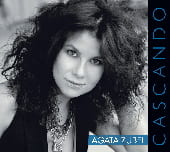 Agata Zubel – Cascando
Agata Zubel – Cascando
Agata Zubel: String Quartet no. 1 for four cellos and computer; Cascando for voice, flute, clarinet, violin and cello; Unisono I for voice, percussion and computer; Unisono II for voice, accordion and computer; Obciążenie dopuszczalne [Maximum Payload] for percussion and computer
Agata Zubel – voice, computer; Cellonet; Seattle Chamber Players; Jan Pilch – percussion; Cezary Duchnowski – computer; Michał Moc – accordion
ACD123
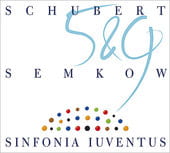 Semkow, Sinfonia Iuventus, Schubert
Semkow, Sinfonia Iuventus, Schubert
Franz Schubert: Symphony no. 5 in B flat Major, D 485; Symphony no. 9 “The Great” in C Major, D 944
Sinfonia Iuventus; Jerzy Semkow – conductor
ACD146
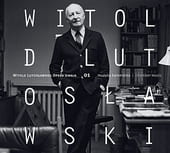 Opera Omnia W. Lutosławski
Opera Omnia W. Lutosławski
Witold Lutosławski: String Quartet; Recitativo e arioso for violin and piano; Bukoliki for viola and cello; Grave for cello and piano; Subito for violin and piano; Sacher Variation for cello solo; Partita for violin and piano; 4 Silesian Melodies for four violins
Lutosławski Quartet Wrocław: Radosław Pujanek – violin, Marcin Markowicz – violin, Artur Rozmysłowicz – viola, Maciej Młodawski – cello; Krzysztof Jakowicz – violin; Jakub Jakowicz – violin; Andrzej Bauer – cello; Bartosz Bednarczyk – piano; Elżbieta Zawadzka – piano; Jan Krzysztof Broja – piano
ACD144
Anniversaries
Born This Month
- 2 February 1909 – Grazyna BACEWICZ , composer, violinist, pianist (d. 1969)
- 7 February 1877 – Feliks NOWOWIEJSKI, composer, organist
- 8 February 1953 – Mieszko GÓRSKI, composer, teacher (active in Gdansk and Koszalin)
- 9 February 1954 – Marian GORDIEJUK, composer, teacher, theorist (active in Bydgoszcz)
- 14 February 1882 – Ignacy FRIEDMAN, pianist and composer (d. 1948)
- 18 February 1881 – Zygmunt MOSSOCZY, opera singer (bass), chemist (d. 1962)
- 27 February 1898 – Bronislaw RUTKOWSKI, organist, music critic, conductor and composer (d. 1964)
- 28 February 1910 – Roman MACIEJEWSKI , composer, pianist (d. 1998 in Sweden)
- 28 February 1953 – Marcin BŁAŻEWICZ, composer, teacher (active in Warsaw)
Died This Month
- 3 February 1959 – Stanisław GRUSZCZYŃSKI, tenor (active throughout Europe, b. 1891)
- 3 February 1929 – Antoni Wawrzyniec GRUDZIŃSKI, pianist, teacher, and music critic (active in Lódz and Warsaw, b. 1875)
- 7 February 1954 – Jan Adam MAKLAKIEWICZ, composer (active in Warsaw, b. 1899)
- 7 February 1994 – Witold LUTOSŁAWSKI , composer and conductor (b. 1913)
- 8 February 1909 – Mieczysław KARŁOWICZ , composer, conductor, writer (b. 1876)
- 9 February 1959 – Ignacy NEUMARK, composer and conductor (active in Copenhagen, Oslo and Schveningen, b. 1888)
- 10 February 1905 – Ignacy KRZYŻANOWSKI, pianist and composer (active in Kraków and Warsaw, b. 1826)
- 14 February 1957 – Wawrzyniec Jerzy ŻULAWSKI, composer, music critic, teacher, and mountain climber (b. 1916)
- 23 February 1957 – Stefan ŚLĄZAK, singer, organist, conductor (active in Silesia, b. 1889)
- 27 February 1831 – Józef KOZLOWSKI, composer (active at the Russian Court in Petersburg, b. 1757)
- 29 February 2004 – Witold RUDZIŃSKI, composer, music critic and teacher


